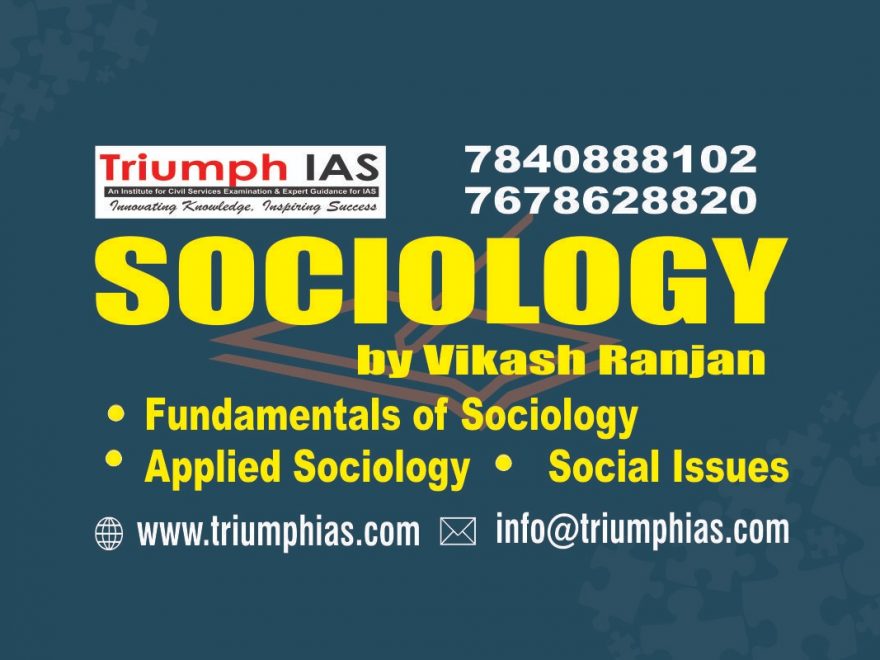THE SECULARISATION PROCESS
The Struggle between the Sacred and the Secular
Secularisation has occurred throughout history. Though uneven, it was discernible from the very early times. In primitive societies it was often seen that super naturalist apprehensions and explanations were intermingled with empirical knowledge and rational techniques. Magical means were mixed with pragmatic procedures. Slowly, the process which Max Weber phrased as the ‘disenchantment of the world’ removed the natural phenomena of their magico-religious meaning as mean acquired more matter-of-fact and empirical and rationalistic orientations.
In fact, some sociologists see the seeds of secularisation in the very development of monotheistic religions, which rationalised and systematised the concepts of the supernatural. These monotheistic religions like Judaism and Christianity. steadily extinguished random magico-religious beliefs and introduced a more, universalistic conception of an increasingly transcendental and universal diets. In this process, these monotheistic religions heralded a process of systematist.; on or rationalisation which is an element of secularisation
To unravel the complex factors and agencies contributing to the process of secularisation is difficult. In Western history (European history), the dissociation of religion and politics – seen in the separation of the Church and the state implies secularisation.
The Church and the State
In Europe, from the very early times, the Roman Catholic Church exercised immense power over all aspects of life. The conversion of Emperor Constantine (306-37 AD) and socially influential classes, gave the Church an immense recognition and opportunity to enter the secular world. Emperor Constantine had established Christianity as the state religion of the Roman Empire
There was also the idea that the Church was not only meant for the salvation of souls for eternity, but also had a mission for this world – to establish a kingdom of God on earth. The clergy were not only involved in other-worldly aspects of life, but were also involved in the secular life. Later, the theology of St. Augustine and the establishment of the Benedictine order, which recommended ‘useful work’ sought to establish the Church in its relation with the secular world. As Weber noted, labour became an essential component of the Christian way of life. The organisation of the Church became increasingly formalised and systematised through the development of canon law and administrative agencies. This development became particularly crucial in the background of a centralised, segmented nature of emerging feudal society. In the face of these tendencies, the Church maintained a fundamental unity.
The organisation of the Church became increasingly formalised and systematised through the development of canon law and administrative agencies. This development became particularly crucial in the background of a centralised, segmented nature of emerging feudal society. In the face of these tendencies, the Church maintained a fundamental unity. after this and made Christianity the state religion. His troops then can have the Christian monogram painted on their shield.
The organisational unity combined with its involvement with secular aspects of life enabled the Church to have immense influence over the social and political life. In a highly stratified society like medieval Europe where the society was divided its aristocratic haves and the poor, the Church played little role in condemning his highly stratified order. In fact, the Church was so interwoven with the feudal system that it became a property holder. The clergy became lords of the, land with political jurisdiction. There was also the idea that the Church was not only meant for the salvation of souls for eternity, but also had a mission for this world – to establish a kingdom of God on earth. The clergy were not only involved in other-worldly aspects of life, but were also involved in the secular life. These circumstances gave rise to the question of where and with whom did the authority lies? With the Church or the secular state?
These circumstances gave rise to the question of where and with whom did the authority lie? With the Church or the secular state? The kings and commoners who were equally tired of the oppressive nature of the church struggled to get rid of the control of the Church and religion from political affairs, as well as affairs of everyday world. The forces that set themselves in opposition to the Church and its power came to be known as secular. While the struggle against the Church and the process which eventually led to the decline of religious authoritarianism replaced it with a rational and scientific outlook. This has been termed secularisation. The secularisation of society is not just an outcome of this struggle between the Church and the state, but is related to all other facets of social change.

